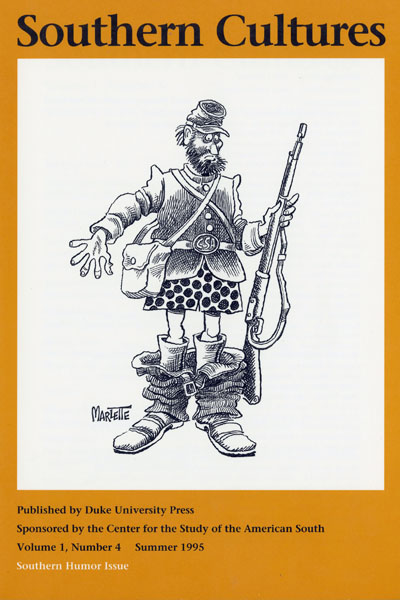Nothing about the South is harder to fathom than how European and African American traditions mixed in the lives of nineteenth-century people. Although some Black and white southerners have flatly denied cross-cultural influences, even those who want to find connections must dig deeply for evidence. In what follows, I suggest we mine a neglected source—southwestern humor—because I believe that slaves helped to inspire it when, by acting out the trickster style from their African heritage, they subverted white honor. Humorists copied, exaggerated, and published these curious exchanges between power and wit, tainting them with racism while capturing them in form. Understanding the dynamics of this influence requires reading blatantly offensive stories like the one printed here; but with that forewarning I offer an example of how an African American spirit lives beneath the dialogue in antebellum humor. Here, by sketching a would-be trickster at work and making an attempt to copy his voice, one humorist blends traditions born on two different continents into a southern style.
This article appears as an abstract above, the complete article can be accessed in Project Muse


